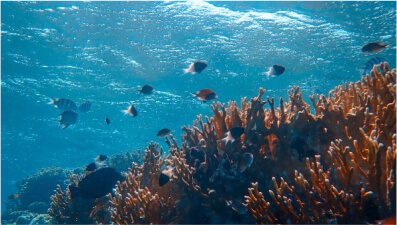The main objective of the training workshop was to train the IORA MS on the best practices of seeding and farming techniques for seaweed and sea cucumber and share the experiences and lessons learnt so that they can contribute to the sustainable development and management of aquaculture resources.
Two species were selected for the demonstration projects, which were implemented in Nacala, Mozambique and Zanzibar, Tanzania, for sea cucumbers and seaweeds, respectively. In addition, the management and best practices in hatchery management and biosecurity, as well as the processing of raw products into the final product and its final uses were also covered. The training provided opportunities for participants to experience some of the derived products from these two species and the experience and lessons learnt from Zanzibar, Tanzania.
The main objective of the training workshop was to train the IORA MS on the best practices of seeding and farming techniques for seaweed and sea cucumber and share the experiences and lessons learnt so that they can contribute to the sustainable development and management of aquaculture resources.
Two species were selected for the demonstration projects, which were implemented in Nacala, Mozambique and Zanzibar, Tanzania, for sea cucumbers and seaweeds, respectively. In addition, the management and best practices in hatchery management and biosecurity, as well as the processing of raw products into the final product and its final uses were also covered. The training provided opportunities for participants to experience some of the derived products from these two species and the experience and lessons learnt from Zanzibar, Tanzania.
The main objective of the training workshop was to train the IORA MS on the best practices of seeding and farming techniques for seaweed and sea cucumber and share the experiences and lessons learnt so that they can contribute to the sustainable development and management of aquaculture resources.
Two species were selected for the demonstration projects, which were implemented in Nacala, Mozambique and Zanzibar, Tanzania, for sea cucumbers and seaweeds, respectively. In addition, the management and best practices in hatchery management and biosecurity, as well as the processing of raw products into the final product and its final uses were also covered. The training provided opportunities for participants to experience some of the derived products from these two species and the experience and lessons learnt from Zanzibar, Tanzania.

